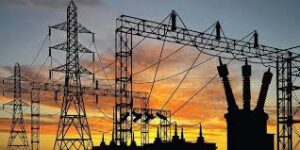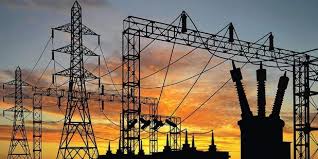Nigeria’s fragile power infrastructure faced another setback as the national electricity grid collapsed for the seventh time this year, plunging much of the country into darkness. The grid’s output plummeted to a mere 70.60 megawatts on Saturday afternoon, exposing the persistent challenges in Africa’s largest economy’s energy sector.

This latest incident comes just days after President Bola Tinubu described the country’s low electricity generation as “shameful,” highlighting the growing frustration with Nigeria’s unreliable power supply. The frequent grid collapses not only disrupt daily life but also hinder economic growth and development.
Energy expert Dr. Yemi Oke comments, “These recurring grid collapses are symptomatic of deeper structural issues in our power sector. We need a comprehensive overhaul, not just patchwork solutions.”
Crisis Highlights:
1. Frequency of Collapses: This marks the seventh grid collapse in 2024, indicating a systemic problem.
2. Widespread Impact: Multiple distribution companies across the country reported outages, affecting millions of Nigerians.
3. Economic Consequences: Frequent power disruptions significantly impact businesses and industrial productivity.
4. Consumer Frustration: Despite recent tariff increases, service quality remains poor, leading to growing public discontent.
5. Technical Challenges: Questions arise about the grid’s infrastructure quality and management.
The crisis has sparked calls for urgent action from various stakeholders. Adetayo Adegbemle, Executive Director of PowerUp Nigeria, suggests that accountability measures, including potential leadership changes at the Transmission Company of Nigeria (TCN), might be necessary to drive improvements.
Princewill Okorie of the Electricity Consumer Protection Advocacy Centre raises concerns about billing practices during outages, particularly for unmetered customers who may be charged for power they didn’t receive.
The Nigeria Employers’ Consultative Association (NECA) emphasizes the need for grid upgrades, especially in light of recent subsidy removals on electricity.
Key areas require attention:
1. Infrastructure Investment: Significant upgrades to transmission and distribution networks are crucial.
2. Diversification of Power Sources: Increased focus on renewable energy could help stabilize the grid.
3. Improved Maintenance: Regular and proactive maintenance of existing infrastructure is essential.
4. Regulatory Reforms: Strengthening oversight and accountability in the power sector.
5. Consumer Protection: Implementing fair billing practices and improving customer service.
The recurring grid collapses underscore the urgent need for a comprehensive strategy to address Nigeria’s power challenges. As the country aims to boost economic growth and improve living standards, a reliable electricity supply is fundamental.
President Tinubu’s administration faces a critical test in tackling this longstanding issue. The coming months will be crucial in determining whether Nigeria can break the cycle of grid collapses and move towards a more stable and efficient power sector.
As Nigeria grapples with this ongoing crisis, the impact extends beyond mere inconvenience. It touches on broader issues of economic development, public trust in government institutions, and the country’s ability to meet the basic needs of its growing population. The path forward will require not just technical solutions, but also political will and a commitment to long-term, sustainable reforms in the power sector.




